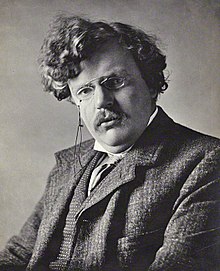This version of The Weekly Francis covers material released in the last week from 3 August 2019 to 5 September 2019.
The Weekly Francis is a compilation of the Holy Father’s writings, speeches, etc which I also post at Jimmy Akin’s blog.
Angelus
General Audiences
Messages
- 22 August 2019 – Message of the Holy Father to the Methodist and Waldensian Churches for the annual opening of the Synod [Torre Pellice, Turin, 25–30 August 2019]
- 30 August 2019 – Video message of the Holy Father on the occasion of his upcoming Apostolic Journey to Mozambique [4–6 September 2019]
- 1 September 2019 – Message of the Holy Father for the celebration of the World Day of Prayer for the Care of Creation
Speeches
- 3 August 2019 – Audience with participants in the Euromoot of the International Union of Guides and Scouts of Europe (UIGSE)
- 4 September 2019 – Apostolic Journey to Mozambique: Greeting to journalists on the flight to Maputo (Papal flight, 4 September 2019)
- 5 September 2019 – Apostolic Journey to Mozambique: Meeting with the Bishops, Priests, Men and Women Religious, Consecrated Persons, Seminarians, Catechists and Animators in the Cathedral of the Immaculate Conception (Maputo, 5 September 2019)
- 5 September 2019 – Apostolic Journey to Mozambique: Interreligious Meeting with the Young in the Pavillon Maxaquene (Maputo, 5 September 2019)
- 5 September 2019 – Apostolic Journey to Mozambique: Meeting with the Authorities, Civil Society and the Diplomatic Corps in Ponta Vermelha Palace (Maputo, 5 September 2019)
Papal Tweets
- “Saint John the Baptist who bore witness to the Messiah by dying for the truth, pray for us!” @Pontifex 29 August 2019
- “In our daily relationship with Jesus, and in the strength of His forgiveness, we rediscover our roots.” @Pontifex 30 August 2019
- “Video” @Pontifex 31 August 2019
- “In today’s Gospel, Jesus invites us to selfless generosity, to open the path towards a much greater joy: that of participating in God’s own love. #Angelus” @Pontifex 1 September 2019
- “Now is the time to rediscover our vocation as children of God, brothers and sisters, and stewards of creation. In this #SeasonOfCreation, I invite everyone to dedicate themselves to prayer.
http://w2.vatican.va/content/francesco/en/messages/pont-messages/2019/documents/papa-francesco_20190901_messaggio-giornata-cura-creato.html” [@Pontifex 1 September 2019][Tw01FF575D4D-024B-4BC3-9624-032621CE6D42] - “This is the season for letting our prayer be inspired anew by closeness to nature, which spontaneously leads us to give thanks to God the Creator.
http://w2.vatican.va/content/francesco/en/messages/pont-messages/2019/documents/papa-francesco_20190901_messaggio-giornata-cura-creato.html” @Pontifex 1 September 2019 - “This is the season to reflect on our lifestyles and to undertake prophetic actions.
http://w2.vatican.va/content/francesco/en/messages/pont-messages/2019/documents/papa-francesco_20190901_messaggio-giornata-cura-creato.html” @Pontifex 1 September 2019 - “We are beloved creatures of God, who in His goodness calls us to love life and to live it in communion with the rest of creation.
http://w2.vatican.va/content/francesco/en/messages/pont-messages/2019/documents/papa-francesco_20190901_messaggio-giornata-cura-creato.html” @Pontifex 2 September 2019 - “Creation, a place of encounter with the Lord and one another, is “God’s own social network”, which inspires us to raise a song of cosmic praise to the Creator.
http://w2.vatican.va/content/francesco/en/messages/pont-messages/2019/documents/papa-francesco_20190901_messaggio-giornata-cura-creato.html” @Pontifex 2 September 2019 - “May God, the lover of life, grant us the courage to do good without waiting for someone else to begin, or until it is too late.
http://w2.vatican.va/content/francesco/en/messages/pont-messages/2019/documents/papa-francesco_20190901_messaggio-giornata-cura-creato.html” @Pontifex 2 September 2019 - “The Holy Spirit, when we invite Him into our wounds, anoints our painful memories with the balm of hope, because the Spirit restores hope.” @Pontifex 3 September 2019
- “I invite you all to join me in prayer, that God, the Father of all, may consolidate fraternal reconciliation throughout Africa, which is the only hope for solid and lasting peace. #ApostolicJourney #Mozambique #Madagascar #Mauritius” @Pontifex 4 September 2019
- “I invite you, each within your own heart, to pray for our brothers and sisters who have lost their lives or who are suffering because of the hurricane in the Bahamas” @Pontifex 4 September 2019
- “The pursuit of lasting peace is a mission that involves everyone. It calls for strenuous, constant and unceasing effort, because peace is like a delicate flower trying to blossom on the stony ground of violence. #ApostolicJourney #Mozambique” @Pontifex 5 September 2019
- “Try to keep quiet a moment and let God love you. Try to silence all the inner voices, and rest for a second in His loving embrace. #ApostolicJourney #Mozambique” @Pontifex 5 September 2019
- “No one is more insignificant than a priest left to his own devices; therefore, our prayer is that of our Mother: I am a priest because the Lord has regarded my insignificance with kindness (cf. Lk 1:48). #ApostolicJourney #Mozambique” @Pontifex 5 September 2019
Papal Instagram






